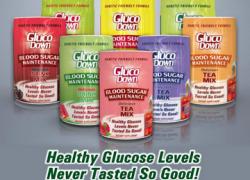Be a Hero, Save a Life, Learn Hands-Only CPR
(NewsUSA) - Witnessing a cardiac arrest can be frightening, but don't be afraid to take action -- two simple steps can save a life.
- Witnessing a cardiac arrest can be frightening, but don't be afraid to take action -- two simple steps can save a life.
Each year, more than 350,000 cardiac arrests occur outside of a hospital or emergency department, according to the American Heart Association. When someone experiences cardiac arrest, immediate cardiopulmonary resuscitation (CPR) can make the difference between life and death. In fact, immediate CPR can double or triple a cardiac arrest victim's chance of survival.
Many people still think that effective CPR involves mouth-to-mouth resuscitation as well as chest compressions, and they may be hesitant to perform it, but that is not the case.
Hands-Only CPR has been shown to be as effective as the conventional CPR for cardiac arrests in the home, office, or in public places in the first few minutes until more advanced help arrives.
"By equipping people with Hands-Only CPR training, they learn how easy the technique is and there is a comfort level that will help them overcome concerns that cause hesitation to act in an emergency," say Raina Merchant, Chair, American Heart Association Emergency Cardiovascular Care.
Hands-only CPR includes just two simple steps.
- First, call 911.
- Second, push hard and fast in the center of the chest of the individual having a cardiac arrest. How hard to push? At least 2 inches. How fast? That's easy. Use the beat of a familiar song that has 100 to 120 beats per minute. For example, the classic disco hit, "Stayin' Alive" can help you stay on pace, but anything with a similar tempo will do.
To help promote the lifesaving value of Hands-Only CPR, the American Heart Association has partnered with the Anthem Foundation, the philanthropic arm of Anthem, Inc., in a public service campaign, "The Power is in Your Hands," to encourage everyone to learn Hands-Only CPR.
"Approximately 70 percent of cardiac arrests happen at home, and CPR can double or even triple chances of survival if performed immediately," said Shantanu Agrawal, M.D., Chief Health Officer at Anthem, Inc. "Together with the American Heart Association, the Anthem Foundation remains focused on working to increase the number of people who learn Hands-Only CPR. By providing greater access to training we can help increase the number of people who are prepared to respond in case of an emergency and for some, that could mean saving the life of someone they love."
The American Heart Association offers a 90-second livestream instructional video demonstration of Hands-Only CPR, as well as a new CPR first-aid app that anyone can download onto a phone.
Visit heart.org/handsonlycpr for more information.










 - A healthy immune system has always been important, but now more than ever, the best products for immune system support are those that boost both respiratory health and heart health.
- A healthy immune system has always been important, but now more than ever, the best products for immune system support are those that boost both respiratory health and heart health.
 - Persistent migraines and cluster headaches disrupt the lives, careers, and families of many people who struggle to find relief from debilitating pain. Migraine is one of the world's most common health conditions, affects roughly 39 million people in the United States, making it the sixth most prevalent illness in the world according to the Institute for Health Metrics and Evaluation's Global Burden of Disease study. In addition, recent studies on symptoms of "long-haul" Covid-19 states that migraine is a common long-term effect of the illness.
- Persistent migraines and cluster headaches disrupt the lives, careers, and families of many people who struggle to find relief from debilitating pain. Migraine is one of the world's most common health conditions, affects roughly 39 million people in the United States, making it the sixth most prevalent illness in the world according to the Institute for Health Metrics and Evaluation's Global Burden of Disease study. In addition, recent studies on symptoms of "long-haul" Covid-19 states that migraine is a common long-term effect of the illness.


 - People living with diabetes are at higher risk of stroke so it's especially important for them to talk to their doctor and manage their risk factors.
- People living with diabetes are at higher risk of stroke so it's especially important for them to talk to their doctor and manage their risk factors.